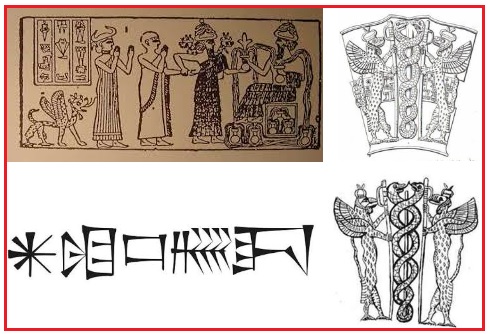In OT scholarship, it’s essentially agreed that there is no outright mention of Satan anywhere in the Old Testament. The Hebrew word satan (pronounced saw-tawn) means accuser, and is used in contexts like 1 Samuel 29:4, where it is said David should not enter a battle against the philistines because he might become a satan and in many other legal type texts such as Psalm 109:6. This is all explained in a paper I just read Satan in the Old Testament by Marvin Tate (which can be freely accessed here). Now, Tate does say something that I disagree with, that the snake in Genesis is not some sort of divine being but just an animal. I think in light of ancient near eastern scholarship and passages in Isaiah and Ezekiel, it definitely is.
This brings me to another point of Tate’s paper which I found surprising. The only real contendor for a mention of Satan in the OT is in 1 Chronicles 21:1, which is a version of the same story in 2 Samuel.
2 Samuel 24:1: Again the anger of the LORD was kindled against Israel, and he incited David against them saying, “Go count the people of Israel” (NRSV).
The same version in 1 Chronicles 21:1 reads;
1 Chronicles 21:1: Satan stood up against Israel and incited David to count the people of Israel
(NRSV).
In one passage, the earlier text of Samuel probably authored in the pre-exilic period, God tells David to take a census. Later, in Chronicles, written anywhere from the late 6th to 4th centuries BC, the author changes it to say satan did this instead. Since Kings and Chronicles contradict each other elsewhere, I just accepted this as a contradiction, but an interesting perspective seems to have come up in this paper. Tate writes after a bit of technical discussion;
Day’s conclusion is that satan is not being used in 1 Chron. 21:1 as a proper name and that the phrase should be read as “and an accuser took a stand against Israel.” Her conclusion seems persuasive to me. We may conclude that a celestial court scene has been assumed with an angelic adversary/accuser having been sent forth to set in notion a judgment against Israel, using David as an earthly agent. Once the action is underway, the satan is no longer important and is not mentioned again. We may guess that the readers of 2 Sam. 24:1 understood that Yahweh incited David through the means of a satan or other divine agent. Thus there is probably no Devil/Satan in the later sense in this passage, just as there is none in Num. 22:22-35; Job 1-2; and Zech. 3:1-7. (pp. 465-6)
This seems especially intriguing, since an outright reference to the name Satan appears nowhere else in the OT. It looks to me as if 1 Chronicles is not contradicting or changing the story of Samuel, but this is part of the larger fact that there is no explicit mention of Satan in the OT, and that the figure of Satan is only really revealed in the NT. Also interesting for others and @Reggie_O_Donoghue I think would be Tate’s discussion on the relationship between the fallen divine being in Isaiah 14 to Canaanite myths on pp. 468-9 (though reading the full paper is important). The paper is also important for understanding texts like the Book of Job, Zechariah, etc.

 Just checked in every once in a while to make sure everyone was playing nice.
Just checked in every once in a while to make sure everyone was playing nice.